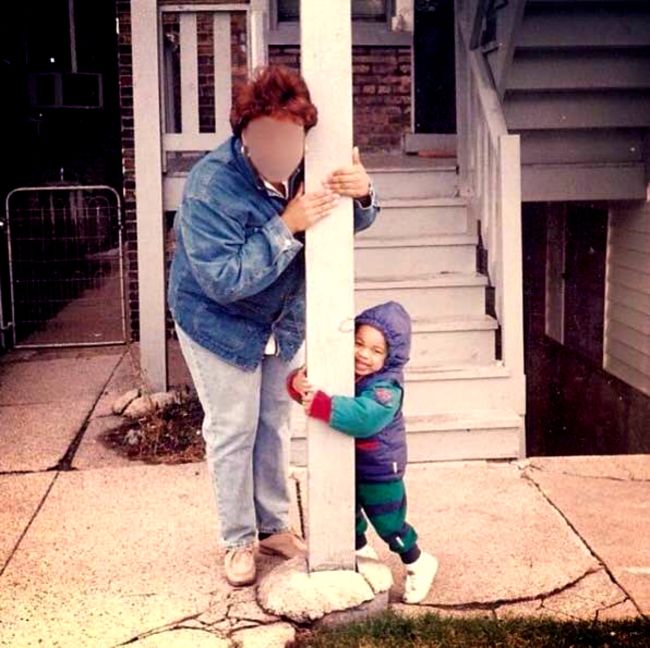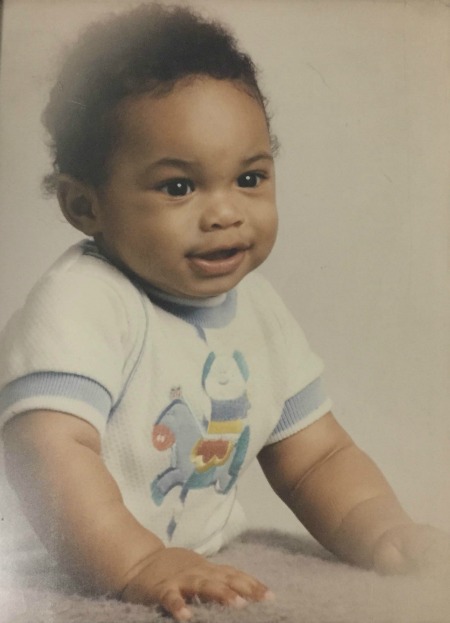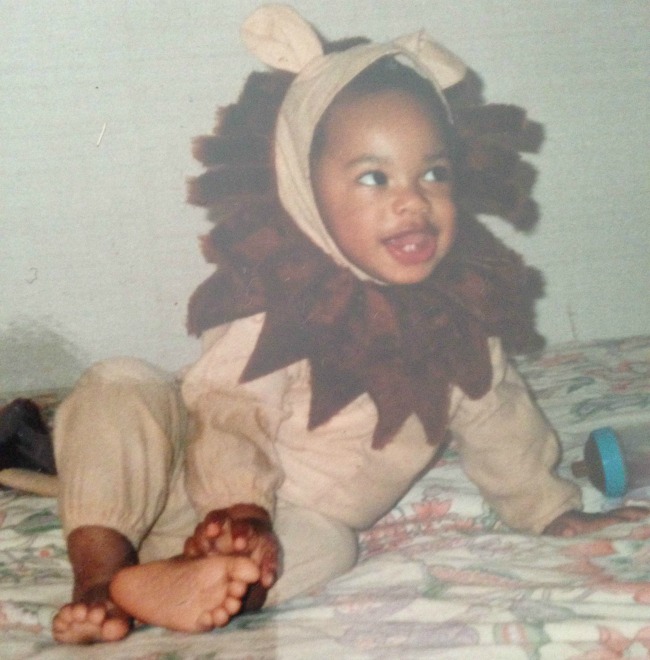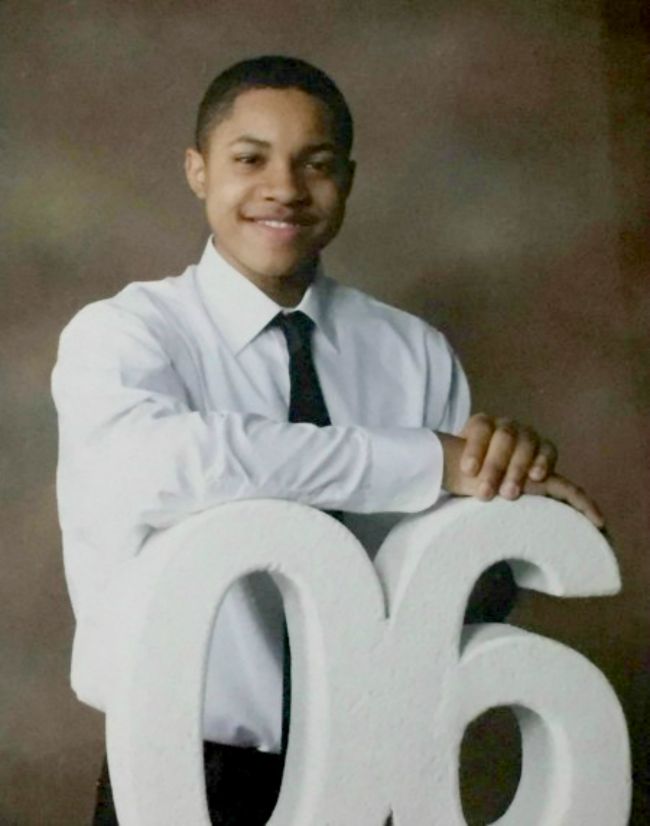
I was 13 years old when my mom first attempted to take her own life, back in December of 2005. I don’t know exactly where I was that weekend, but I remember having to stay with my grandmother for the next couple of weeks while my mom spent New Year’s Eve in the University of Chicago’s psych ward. It wasn’t until I got a few years older than I found out she’d intentionally taken dozens of pills — in an attempt to end a pain that I couldn’t quite understand.
Like most kids, I didn’t really know depression was “a thing” growing up. But I did notice that pretty much all my mom ever did was go to work and sleep for 12 hours a day. My innocence led me to think that everyone’s parents did this and she just needed the rest from working so hard to take care of me.
As I got older, I started to notice that whenever my mom was actually awake she wasn’t happy. So, starting at an early age, I took it upon myself to make her smile whenever I could. At first, this just entailed telling her “I love you” every time I saw her. Eventually, it morphed into me acting as sort of a motivational life coach/ stand up comic. I did Desi Arnaz impressions to make her laugh then sat down and unpacked what was bothering her step-by-step, until she realized it wasn’t as devastating as she’d thought.
On the especially hard days — when I noticed she hadn’t left the bed at all — I’d walk across the hall, stand in her doorway and give her positive reinforcement for as long as it took for her to push back the covers and stand up.
***
Eventually, I learned that my mother suffered from depression. To be more specific, she’d been diagnosed with clinical depression, an anxiety disorder, and obsessive-compulsive disorder back when I was three. For a time, she was thought to have bipolar disorder and, at one point, she was subjected to more than a dozen rounds of shock therapy.
It’s tough to say how long she was actually dealing with all of this before the official diagnosis, but she didn’t start getting professional treatment until I was born, after displaying symptoms of postpartum depression.

In decade following the 2005 suicide attempt, my mom had her fair shares of ups and downs but she promised me that she wouldn’t attempt suicide again. For more than ten years, she kept that promise — battling through who knows how many bad days. Then, a few weeks ago, she took more than 30 anti-anxiety pills in an attempt to “go to sleep and forget” all the things that had been weighing her down.
When I was 13, the situation had been handled before I even knew what was going on. My mom was admitted to a hospital and everyone collectively decided that I wouldn’t get to see her. This time around was different. After a late night out with friends, my aunt woke me with a 7:30am call to say that my mom sent a text to the family priest in the middle of the night, asking for prayers after taking a bunch of pills.
I was dressed and out of the door within a few minutes. I don’t think I said anything other than “Oh shit.” I was going to be the first person to arrive at the house and I was terrified of what I might find.
When I got to her, my mom was still conscious, but was drifting in and out. My grandmother arrived a few minutes later. She came in, saw that mom was alive, and almost instantly stormed out again. A few moments later my aunt walked in and headed straight for the bed.
My mom and I couldn’t have been alone for more than a more than a minute or two between my grandmother rushing out and my aunt rushing in. But the helplessness I felt in that span is something I’ll never forget. I had no idea what to do. My back was up against her dresser and she was across the room sprawled across her bed. I know I must have said something because I remember her talking to me, but I couldn’t tell you what I said.
Luckily, my aunt had dealt with these situations before — both with my mother and their grandmother, who they grew up watching go in and out of hospitals because of her own mental health trouble.
“What did you do? How many did you take?” my aunt asked, standing at my mom’s bedside.
“…Probably about 50…” was the slurred reply.
When I heard that, I ducked out of sight, in the hallway, to weep. My aunt called the ambulance and we spent the next five minutes helping my mom get dressed and letting her know that, despite her pleading, she was headed to the hospital. My aunt left with the medics and I stayed back, trying to wrap my head around what it means when a woman who swears she loves you tries to end it all.

The last thing I wanted was to be alone. The only option for company was my still fuming grandmother, but I wasn’t ready to let her vent her frustrations to me just yet. I called two of my best friends instead, both of whom live more than a thousand miles away. One friend was still asleep, the other picked up groggily. I’d imagine that’s a hard call to get. What do you say? How can you help? We spoke for a few minutes and hung up.
Still desperate to talk to someone, I called my dad, who was on the last day of his vacation with my stepmother in Las Vegas. Inexplicably — after the toughest of tough childhoods — my dad is the most optimistic person I know. He’s always been quick to hand you a self-help book if you need it. But, at that moment, For the Love of The Game by Michael Jordan couldn’t fix my problems.
The next day I was able to pick my mom up from the ICU of a nearby hospital. While it would’ve been nice to have someone to come along with me, I understood that people had their own responsibilities and this was mine. When I got to her room she was drowsy, could hardly walk, and wasn’t speaking clearly. But that was far better than the alternative, so I did my best to keep it together and tried to lift her mood — just like I had as a kid.
A few different times I had to step back out into the hallway to fight back tears.
“Where did you go?” she’d ask when I walked back in.
“Nowhere,” I’d respond. “Just making a quick call.”
“I’m sorry I suck as a mom. I shouldn’t be making you deal with this,” she’d say, with her eyes closed as if she was too ashamed to look at me.
“Look, Ma. I’m not judging you. I’m just trying to get you home,” I said. “I’m here because I love you and that’s unconditional. You know what that means? It means I love you no matter what.”
It took me days just to admit to her that I cried during that period. Not because I feel that crying makes me weak or anything like that. But I knew that she was too vulnerable at the time to find out I was hurting, so I tried to never let her see it.
Over the next week I drove her to therapist appointments, slept in my old bedroom and spent a couple nights picking her up off of the floor because the hospital’s drugs had some seriously long-lasting effects. It was exhausting and I couldn’t think about much else.
It would’ve been easy to get angry. Although she repeatedly insisted otherwise, it appeared my mother had broken a clear promise she made and almost left me for a second time. That’s the reaction a lot of our family members had. But I worked hard to constantly remind myself and others that this wasn’t her fault. It was out of her control.
***
A common misconception about suicide is that those who attempt it are selfish for not thinking of their loved ones. The truth is, suicide is a last resort. An escape plan for people who are so far gone that they think it’s the only way to end the pain and suffering. They may even become so consumed by their feelings of being a burden that they convince themselves the world and their families would be better off without them. (So making someone feel guilty for having these feelings will never have the desired effect.)
I know this for two reasons. The first being that I’ve helped my mother manage her depression by being a sounding board and counselor for years. The second is that I’ve had my own battles with depression and anxiety since I was as young as 11. I’m not sure if it’s genetic, a result of growing up so close to so much pain or a combination of the two. Luckily I wasn’t completely blindsided by my own struggles with depression, I’d seen the closest person to me deal with it every day.
Post-graduation was an especially rough patch for me, like it is for many people graduating today. I had the biggest expectations possible for myself, yet I was stuck writing for free and working a part-time retail job with crappy pay while many of my classmates had already found fulfilling work. Luckily, I never got to the point where things were completely overwhelming and unbearable – but I was pretty close. The main thing that kept me in line was witnessing my mom’s experiences first-hand and catching the warning signs in my own behavior early. In short: I was able to recognize that wandering around the house in sweatpants for weeks at a time wasn’t productive.
I saw a therapist for a few months and it helped. By no means did it completely cure me of anything, but it did help me identify what the big issues were and how to better manage them. For example, I never actually considered that I may have also suffered from anxiety, but the second I found out I did a lot of things started to make sense.
While I’ve decided not to take medication for very personal reasons – namely my mother’s near-fatal misuse of them – I still respect them as a tool that can be very beneficial for some if used correctly. I’m also now a firm believer that counseling is something that everyone should experience, just to make sure they’re properly equipped to handle the unavoidable obstacles that will come their way.

On my left wrist you’ll find a tattoo of a semicolon, although it’s usually covered by a watch. This was inspired by Project Semicolon, a campaign that really picked up more than a year ago. The message behind the tattoo is that, in writing, semicolons can be used in the place of periods to keep a sentence going. In life, it means an extension, a fresh start without the hard ending.
You won’t find any pictures or mentions of my ink on social media – I didn’t really tell anyone I got it – because it’s more of a reminder for me than anything else. My mom actually thought it was such a cool idea that she got one too. Not to say that I necessarily wanted matching tattoos with my mom, but who am I to deprive her of supporting such a noble message?
To be perfectly clear, I love my mom and have everyday for as long as I can remember. Being raised by her, even with her limitations, had its hidden benefits. For example, I’d like to think I’m a very patient and nurturing person, especially in regards to emotional distress.
There are still some big hurdles I’ll have to face one day, though. I worry about how my own issues will affect my personal life and the fear that I’ll unknowingly put my own family through something similar. But the first step in dealing with all of this is being proactive and I’m proud to say I’ve already started that.
***
I was cautious to tell my mother I was writing this. Sure, it’s a part of my life and I have as much a right to talk about it as anyone else. But I also didn’t want to lose her trust or put her professional career in peril. Not only did talking to her about it lead to some healthy dialogue, but it made this piece better and more detailed. It also kept me from writing this under a pseudonym. (I was inspired by fellow Uproxx writer Brian Grubb, formerly Danger Guerrero.)
Depression is reported to affect almost 3 million people in the United States per year. Given the statistical likelihood that this will be read by someone that’s either battling it themselves or knows someone that is, I set out hoping that my experiences could ease someone’s process. Looking back on the past few weeks – and most of my childhood – I feel like it would’ve helped to know that other people had gone through something similar. Sometimes, just knowing you aren’t alone is enough to see you through the storm.






